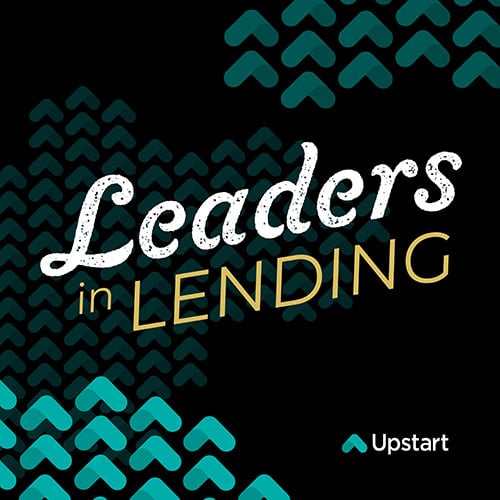Simon brings over 10 years of experience in Lending, Payments and the Banking as a Service industry (BaaS). Prior to joining FinWise, Simon worked at Merrill Lynch and Cross River Bank, where he was a strategy and product analyst working in payments, marketplace lending, crypto and cards, along with neobank partners. Simon graduated with honors from McGill University in Montreal in Finance and Economics.
Leaders in Lending | Ep. 133
From Europe to the US: Cultural and Market Nuances in Fintech
Joining our host Ed Walters this week is Simon Darchis, Head of Partnerships at Finwise Bank, to discuss his trajectory in the financial services sector from Europe to the US. With this multi-cultural background in finance, Simon explains the intricacies of fintech, unraveling the cultural and regulatory differences that shape these distinct markets.


GUEST SPEAKER
Simon Darchis
Simon brings over 10 years of experience in Lending, Payments and the Banking as a Service industry (BaaS). Prior to joining FinWise, Simon worked at Merrill Lynch and Cross River Bank, where he was a strategy and product analyst working in payments, marketplace lending, crypto and cards, along with neobank partners. Simon graduated with honors from McGill University in Montreal in Finance and Economics.

ABOUT
Finwise Bank
FinWise is a financial tech bank that offers big-bank security with community bank service. Their goal is to make financing, banking and investing simple for friends and neighbors. With on-the-go services like mobile banking and onsite advisors who can help customers with their financial goals, FinWise provides its customers with personalized financial wisdom.
Key Topics Covered
- The pivotal role of adaptability in navigating the evolving landscape of financial services
- Insights into the contrasting fintech practices between America and Europe, emphasizing the significance of cultural understanding in the industry
- The critical importance of compliance in fintech partnerships

“We have to meet somewhere in the middle, we have to meet somewhere where the fintech is happy, growth is maximized and compliance is preserved.”


"I think we'll start to see an even more dramatic rise in the use of artificial intelligence, and lending has somewhat embraced it already."
EPISODE RECAP & SUMMARY
Joining our host Ed Walters this week is Simon Darchis, Head of Partnerships at Finwise Bank, to discuss his trajectory in the financial services sector from Europe to the US. With this multi-cultural background in finance, Simon explains the intricacies of fintech, unraveling the cultural and regulatory differences that shape these distinct markets.
Financial services
It’s not a secret that the American economy is driven by debt, whether that’s commercial or consumer. “In Europe, we have the stereotype that for every dollar an American earns, he's going to spend three, so the difference has to be made up somewhere,” Darchis said.
Lending in Europe is not as widely available, and credit cards are virtually unknown — they exist, but they're not common.
“I can remember my parents telling me, ‘Never spend more than you earn,’” he continued. “Coming from those cultural differences, fintechs just grew in debt in different directions in America and Europe. That's why, when you look at the fintech industry, the first sub-sector that popped in America was the lending space.”
In Europe, the space in fintech that rocketed up was neobanks. Think of services such as Venmo, spaces to facilitate peer-to-peer transactions.
“Most countries in Europe — with the notable exception of Germany and the UK — don't have credit agencies,” Darchis said. “If you're to apply for a personal loan, you do it at the branch of your bank that you'd normally go to, and you go through manual underwriting.”
The pivotal role of adaptability in navigating financial services
As head of partnerships, Darchis regularly enacts a firefighter level of attention, keeping operations smooth and personnel content alongside strategy and planning.
He jumps across three buckets of people he serves:
- Internal personnel at the bank
- Partners
- Regulators
By keeping a finger on the pulse of these three buckets, alongside the ever-changing landscape of fintech, he ensures a productive and proactive system.
“It's always a little bit of a juggling act to make sure that everyone stays happy and on the same page,” he said. “It also means trying to stay up to date with the current trends, making sure that the bank is not falling behind on the next trends and products.”
Adapting comes with evaluating risk. And, as a bank, Darchis emphasized the importance of finding a partner who meets the needs of the bank while maintaining regulatory compliance.
What it takes to navigate hyper-specific partner selection
Darchis’ biggest tip for staying selective while partner-hunting is to never be afraid to say no to a partner. Saying no to the wrong partnerships is just as important as saying yes to the right ones.
- Look at product market fit. Is this a product creating a need or solving a need in the market?
- Look at the culture of the partner. Did they ever run into issues with regulators or the law? What is their leadership like? What are the backgrounds of their key members?
- Look at their compliance strategy. Do they have a culture of compliance? How have they handled compliance in the past, and how are they planning on approaching it in the future?
“Once we pass these first hurdles, we have a pretty extensive due diligence process," he said. “We want to make sure that you have strong financial backing, that if you're playing on the lending side of the space, you have access to debt, and you have access to equity if you're going to be financing everything yourself.”
The stage of the potential partner should also determine the level of procedure and history available for evaluation. A more established fintech will likely have more policies and procedures in place when it comes to regulation.
Keeping compliance and trust at the center of these negotiations is paramount for navigating partnerships across any and all cultures.
Stay tuned for new episodes every week on the Leaders in Lending Podcast.




